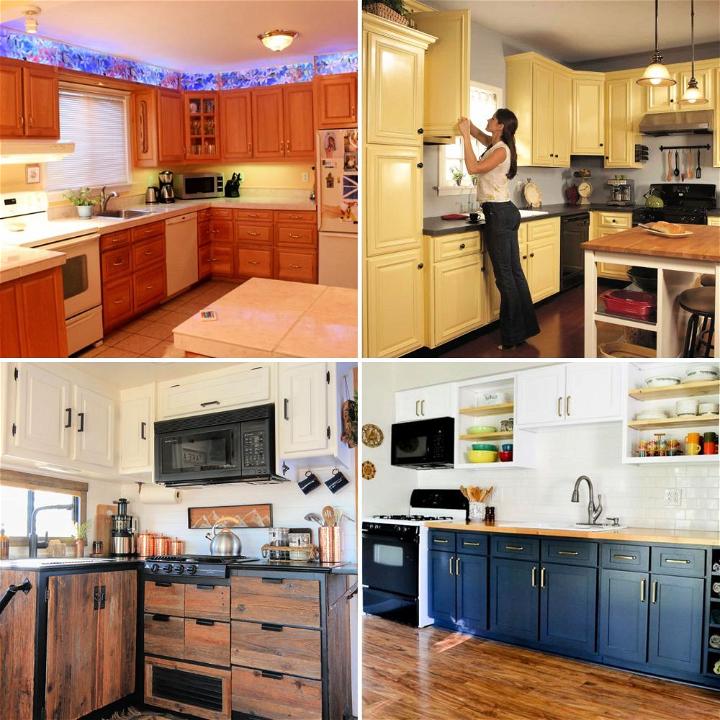Building your own car ramps can be a rewarding project that not only saves you money but also gives you a custom solution for vehicle maintenance. This guide walks you through making sturdy, effective car ramps with a unique feature: a removable rear safety block for added safety. Drawing from hands-on experience and challenges overcome during the build, and this article aims to equip you with knowledge and practical advice for constructing your own car ramps efficiently.

What Will I Get Out of This?
By following this comprehensive guide, you will learn how to build durable car ramps out of wood that are tailored to your vehicle's dimensions. These ramps will be a safer, sturdier alternative to some store-bought plastic ramps, and the removable rear safety block enhances safety by preventing your car from rolling backwards. Designed for under $50, this DIY solution addresses common pitfalls like material slippage and structural integrity doubts associated with commercially available ramps.
Materials Needed
- Two by tens wood: Forms the main structure of the ramp. Chosen for its strength and accessibility.
- Wood screws: To securely fasten the wooden pieces together.
- Dowel rod: For making the removable rear safety block, offering an easy and safe method to block and unblock the vehicle.
- Miter Saw or Circular Saw: For making precise cuts on the wood.
- Drill with a countersink bit: For pre-drilling screw holes to ensure a flush finish and using a dowel jig.
- Wood Glue: To reinforce the dowel joints in the safety block.
- Sandpaper: For smoothing any rough edges, particularly on the dowel, to guarantee ease of use.
Step-by-Step Instructions
Cutting the Wood
- Measure and Cut the Main Pieces: Begin by measuring your two by tens and cutting them to 45 inches in length for the primary ramp surface. This size is optimal for most vehicles but can be adjusted based on your specific needs.
- Cut Incremental Pieces for the Ramp Layers: Next, you will need additional pieces for each ramp layer, each 7 inches shorter than the one below it (e.g., 38 inches, 31 inches, and finally 24 inches for the top layer).
Assembling the Ramp
- Secure the Layers Together: Align the cut pieces from largest to smallest and attach each layer with wood screws. Use a countersink bit to ensure the screws are flush with the wood surface.
- Make and Attach the Safety Block: For the safety block, cut a small chunk of wood and a corresponding dowel. Drill holes in both the ramp and the block to fit the dowel snugly.
- Sand and Glue the Dowel: Sand the dowel for a smooth entry into the drilled holes and then glue it into the safety block but not the ramp, allowing it to remain removable.
Testing and Troubleshooting
- Test Your Ramp: Safely roll your vehicle onto the ramp. Insert the safety block behind the rear wheel to ensure it fits and holds securely.
- Adjust as Necessary: If you encounter issues with the ramp slipping or the dowel sticking, reassess the drilled holes for alignment and re-sand the dowel as needed.
Video Tutorial
Want a visual demonstration? Watch a step-by-step video tutorial on YouTube for constructing these DIY car ramps. It provides a clear and easy-to-understand visual walkthrough of the techniques, making it a great companion to this written guide.
Make car ramps for safer vehicle maintenance with removable rear block for added safety. Always test in controlled environment for safety.
FAQs About DIY Car Ramps
Get answers to your FAQs about DIY car ramps! Learn how to build and use them safely for your vehicle maintenance needs.
What materials are best for building DIY car ramps?
The most commonly used material for DIY car ramps is wood, specifically 2x8 boards due to their strength and affordability. Ensure the wood is untreated and sturdy enough to support the weight of your vehicle.
How do I ensure my car ramps are safe to use?
To ensure safety, the ramps should have a multi-tiered, chamfered design with each board securely drilled together. The angles should be precise, typically at 45 degrees, to provide a gradual incline. Always test the ramps with a small load before driving your vehicle onto them.
Can I build car ramps that are adjustable for different vehicles?
Yes, you can design ramps with an adjustable height feature. This involves making a modular design where sections can be added or removed to accommodate various vehicle clearances.
What are the benefits of using DIY car ramps over commercial options?
DIY car ramps are cost-effective, customizable to your specific needs, and can provide a sense of accomplishment. They also allow for a more compact storage solution compared to bulky metal ramps.
How can I make my car ramps more environmentally friendly?
Consider using recycled or repurposed wood to build your ramps. Additionally, look for eco-friendly treatments or sealants to protect the wood and extend the lifespan of your ramps.
25 DIY Car Ramp Ideas and Inspirations
Discover 25 creative DIY car ramp ideas to elevate your automotive projects. Get inspired with easy-to-follow inspirations for your next DIY project.

1. Budget-friendly DIY Car Ramps

Making budget-friendly DIY car ramps can be a savvy move for the hands-on car enthusiast. These ramps offer a cost-effective solution for light maintenance tasks, from oil changes to tire rotations. By utilizing readily available materials, you can make a pair that's both robust and reliable, all while keeping your wallet happy.
2. Heavy-Duty Car Ramps Plan

When your vehicle demands a bit more from maintenance activities, opting for a heavy-duty car ramps plan makes all the difference. Designed to withstand greater weights, these ramps are ideal for larger vehicles. The added durability comes from thoughtful materials selection, ensuring your car sits securely for any task at hand.
3. DIY Wooden Car Ramps

Embracing the warmth and customization that woodworking offers, DIY wooden car ramps bring a personal touch to your garage. Not only do they serve a practical purpose, but their wooden construction also offers a unique aesthetic. With proper treatment and care, these ramps can be a durable and attractive solution.
4. How to Build Car Ramps Out of Wood

For those intrigued by woodworking, building car ramps out of wood is a project that combines functionality with craftsmanship. This approach allows for a tailored fit to your car's specifications, providing a sense of achievement upon completion. It's a creative way to enhance your car maintenance experience.
5. Handmade Wooden Car Ramp
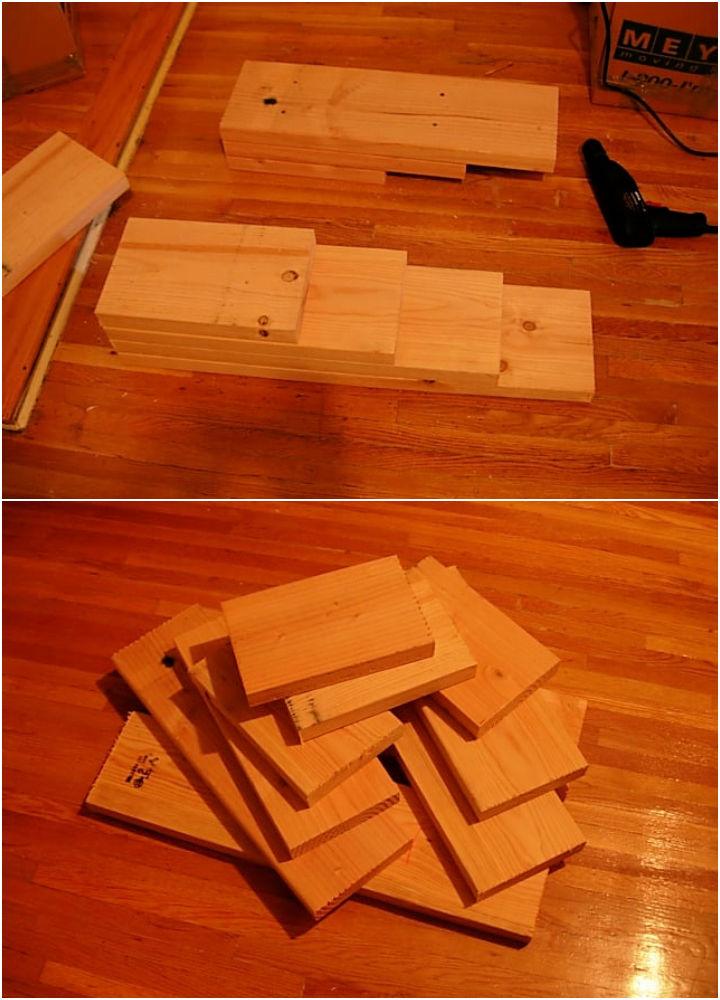
Handmade wooden car ramps are about more than just utility; they're a labor of love. Each piece tells a story of careful planning and execution. Their sturdy design ensures safety during use, offering a reliable platform for your vehicle, whether it's for inspection or minor maintenance tasks.
6. Simple and Cheap Car Ramps
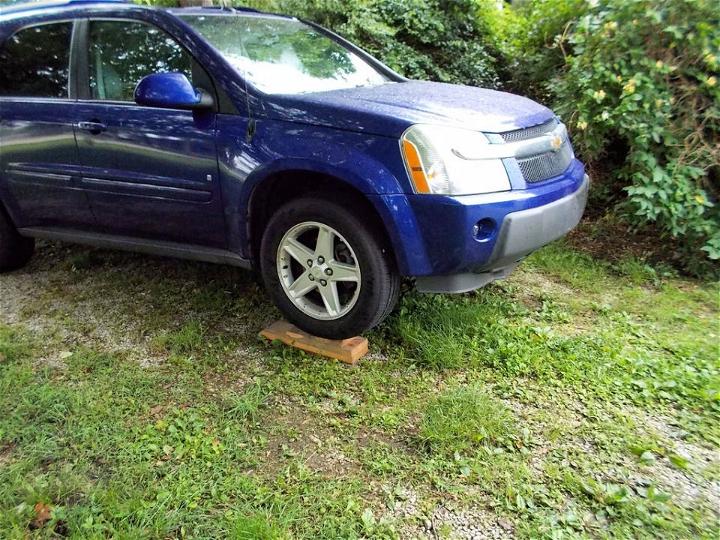
Sometimes, simplicity and affordability are key. Simple and cheap car ramps serve the essential purpose without any fuss. Ideal for occasional use, they can be made from a variety of materials, reflecting a minimalist approach. This option proves that effective car maintenance doesn't have to break the bank.
7. Build Your Own Ramps for C or C Corvette

Making your own ramps for a C or C Corvette brings an added layer of customization to caring for your special ride. These iconic cars deserve ramps that not only match their low profile but also complement their distinctive style. This DIY project can be a rewarding way to ensure your Corvette is treated with the respect it merits.
8. Making Car Ramps for Low Cars

Making car ramps for low cars addresses a common challenge many sports car owners face. The design focuses on a gentle incline, ensuring that your prized vehicle can be elevated without risking damage to the bodywork. It's a thoughtful solution for those who cherish their low-clearance cars.
9. DIY Wooden Car Ramps for Low Profile

DIY wooden car ramps for a low profile are tailored to meet the specific needs of cars with minimal ground clearance. The design prioritizes a smooth transition from ground to ramp, minimizing the risk of scrapes. With these ramps, maintaining a sleek and stylish low-profile car becomes a breeze.
10. How to Make Welded Steel Car Ramps

For those who enjoy metalworking, learning how to make welded steel car ramps can be quite fulfilling. Steel offers unmatched strength and durability, making these ramps suitable for heavy-duty applications. This project combines practicality with the opportunity to hone welding skills, resulting in a set of ramps as robust as they are rewarding to make.
11. Free Car Ramps Plan
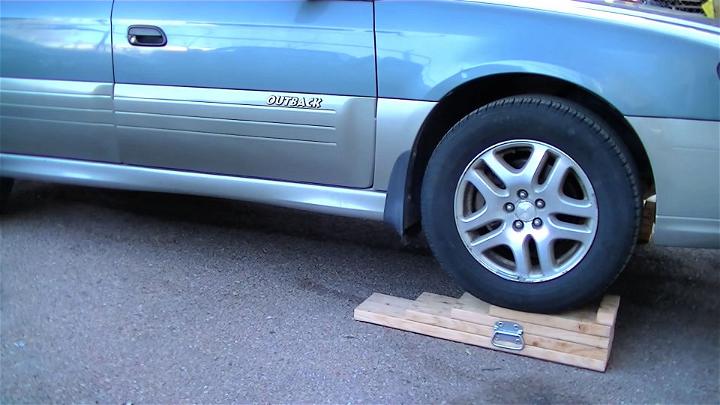
Making free car ramps can be a rewarding project. With the right plans, you can make a set that's not only functional but also cost-effective. These ramps provide a stable platform for basic maintenance, making them a great starting point for DIY enthusiasts.
12. Affordable DIY Wooden Car Ramps

Embarking on an affordable DIY wooden car ramp project is a fantastic way to get your vehicle lifted without breaking the bank. Using minimal tools and materials, these ramps are perfect for irregular use and can be easily stored when not needed.
13. DIY Car Ramps from Scrap Wood

Utilizing scrap wood for your DIY car ramps is an excellent example of upcycling. Not only does this approach save resources, but it also offers a sturdy solution for light automotive work, such as checking the undercarriage or changing fluids.
14. How to Make Wooden Car Ramps
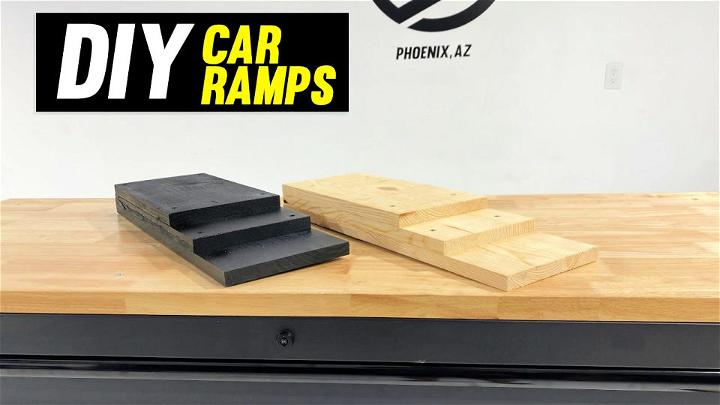
Learning how to make wooden car ramps involves understanding the basics of woodworking and design principles. These ramps are lightweight, easily customizable, and suitable for vehicles with low clearance, making them a versatile choice for many car owners.
15. How to Build Wooden Auto Ramps
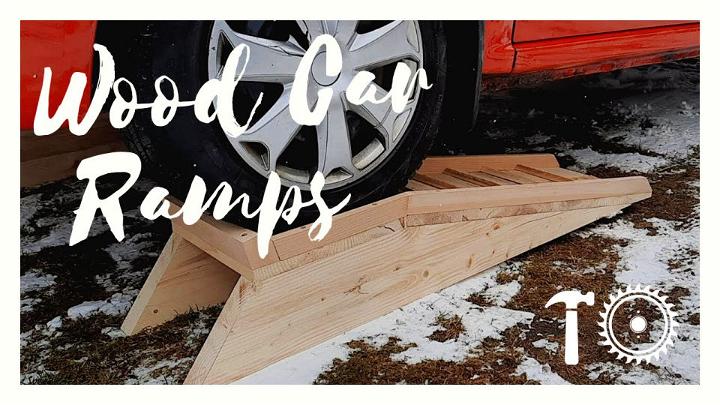
Building wooden auto ramps from scratch can be an empowering experience. This project allows you to tailor the dimensions to your car's specifications, resulting in a set of ramps that optimally supports your vehicle during maintenance or inspections
16. Best Car Ramp Out of Steel
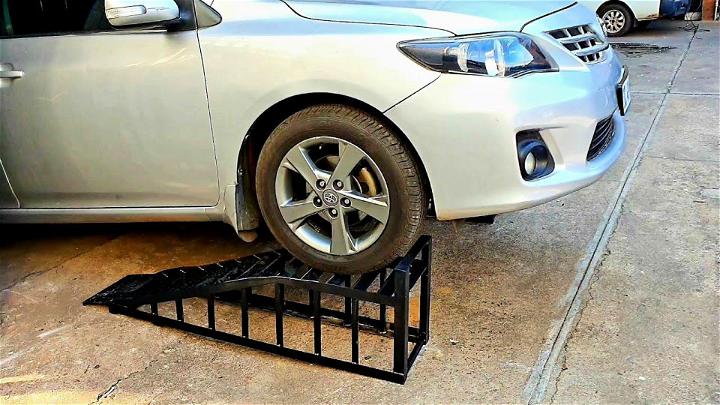
Considering a best car ramp out of steel? This option promises durability and a higher weight capacity, ideal for heavier vehicles. Steel ramps can handle more wear and tear, making them a smart investment for frequent users.
17. DIY Wooden Truck Ramps

DIY wooden truck ramps cater to those with larger vehicles. Designed to bear more weight, these ramps offer a safe and reliable lift for trucks, making tasks like cargo loading and detailed cleaning more accessible.
18. Full Length Heavy Duty Car Ramps

For those who need a reliable lift, full-length heavy-duty car ramps are the way to go. Their extended design ensures a gentler incline, perfect for low-riding vehicles or performing more intensive maintenance tasks safely.
19. How to Make Car Ramps Higher

Making your car ramps higher can be a simple modification with the right approach. This adjustment is ideal for vehicles requiring extra clearance, allowing for a smoother and safer way to conduct thorough checks or repairs underneath.
20. DIY Car Ramp for Oil Change

Making a DIY car ramp specifically for oil changes can streamline this routine maintenance task. By focusing on stability and optimal height, you can design a ramp that not only elevates your car to the perfect level but also simplifies the oil change process.
21. Cheap and Customizable Car Ramps

Looking to elevate your vehicle maintenance experience? Cheap and customizable car ramps might be the answer. These ramps offer a cost-effective solution for home mechanics. With adjustable heights and widths, they can fit a variety of vehicles. Their affordability doesn't compromise on safety or durability, making them a wise choice for budget-conscious car enthusiasts.
22. Homemade Vehicle Ramps From Scratch
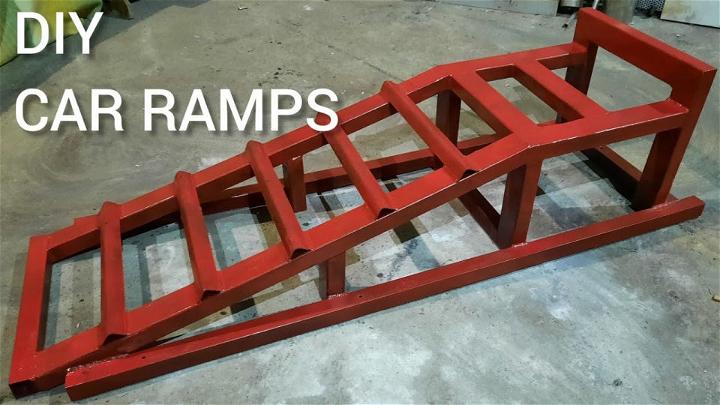
Ever thought of building homemade vehicle ramps from scratch? It's a gratifying project that gives you complete control over the dimensions and capacity. Using materials like wood or metal, you can make a set of ramps tailored to your specific needs. It's not just about saving money; it's about crafting something that perfectly fits your vehicle's requirements.
23. DIY Plywood Car Ramps

DIY plywood car ramps present a unique blend of lightweight design and robust support. Plywood is surprisingly strong and can hold substantial weight, making it an excellent material for this purpose. Building your car ramps from plywood can be a straightforward weekend project, resulting in a reliable and efficient solution for safely elevating your vehicle.
24. Car Lift Design Using Steel
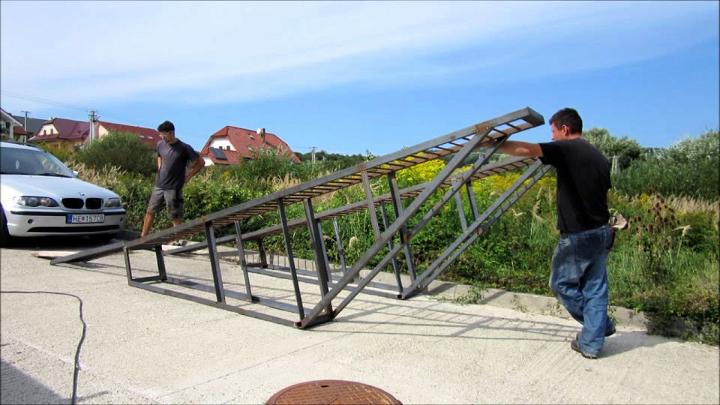
Considering a more heavy-duty option? A car lift design using steel could be the ticket. Steel lifts are exceptionally sturdy, offering peace of mind when working under heavier vehicles. This design allows for adjustable heights and can support a wide range of cars. It's a professional-level setup that's achievable in a home garage with some metalworking skills.
25. Ultimate DIY Car Wooden Ramps

And finally, the ultimate DIY project for the motivated car enthusiast – building your own wooden car ramps. This approach combines durability with aesthetics, as wood can be both strong and visually pleasing. Crafting your ramps from wood allows for customization in size and shape, catering to any vehicle. It's a practical and rewarding project, turning basic materials into essential tools for auto maintenance.
Conclusion:
In conclusion, constructing DIY car ramps is a cost-effective and straightforward solution to accessing the underside of your vehicle for maintenance or repairs. With easy-to-follow instructions and basic materials, this project can be completed by DIY enthusiasts of all skill levels. By building your car ramps, you not only save money but also gain a sense of accomplishment and independence in your automotive endeavors.














